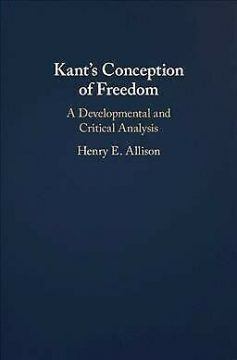 Over at NDPR, Allen Wood reviews Henry Allison’s Kant’s Conception of Freedom: A Developmental and Critical Analysis:
Over at NDPR, Allen Wood reviews Henry Allison’s Kant’s Conception of Freedom: A Developmental and Critical Analysis:
The title of this hefty book might easily mislead. The book is in effect a detailed survey of Kant’s entire philosophy, including even many Reflexionen from Kant’s Nachlass, as seen from the standpoint of one of its leading scholars of the past half century. It encompasses the development of Kant’s philosophy from Universal Natural History and Theory of the Heavens (1755) all the way to Religion within the Boundaries of Mere Reason (1793-94) and even Metaphysics of Morals (1798). The book’s ten chapters divide evenly between Kant’s writings before the Critique of Pure Reason (1781) and his writings after that. It is sometimes evident that Henry E. Allison is reading the early writings as preparatory to his interpretation of the works for which Kant is much better known. But since Allison himself thinks Kant’s mature views about freedom developed relatively late, and that the crucial turn came only between 1785 and 1788, it is hard to resist the conclusion that in the first 230 pages or so Allison is coming to terms with Kant’s early writings more as an end in itself rather than a means to understanding Kant’s later philosophy.
How can one review such a book? Many ostensible book reviews are really discussions of the topic of the book by someone other than the book’s author. Such reviews are sometimes interesting and informative, even if they are mainly a display of the reviewer’s thoughts. But I have always thought that the first duty of a review is to inform its readers about the contents of the book. Criticisms are valuable, if informed and economically argued, because you can learn something about a book’s contents by seeing how they might be challenged.
More here.
